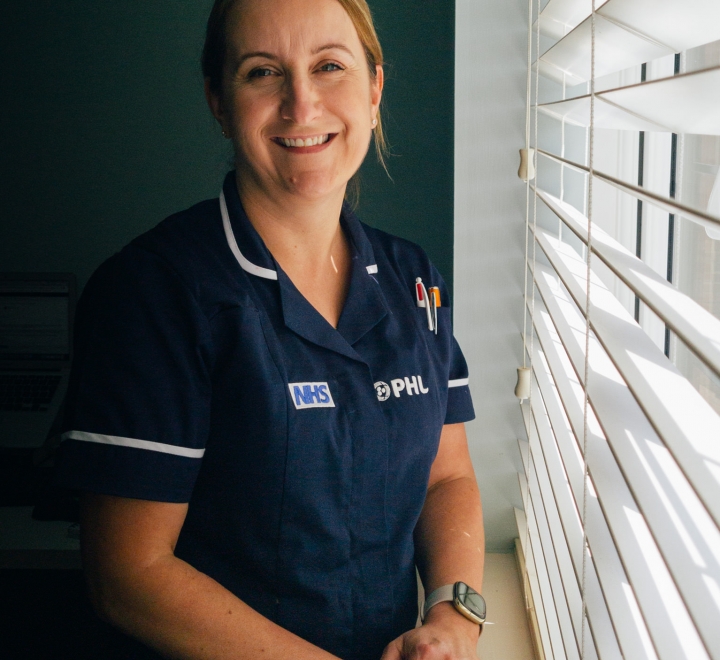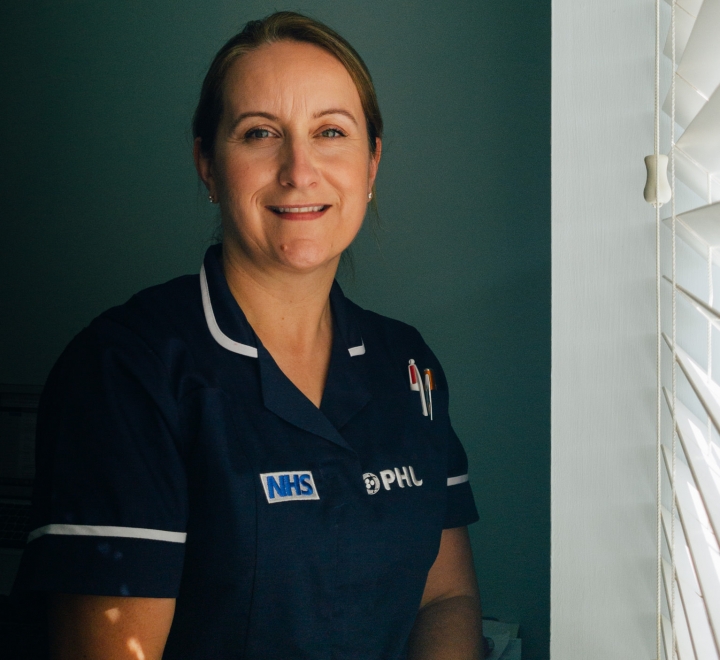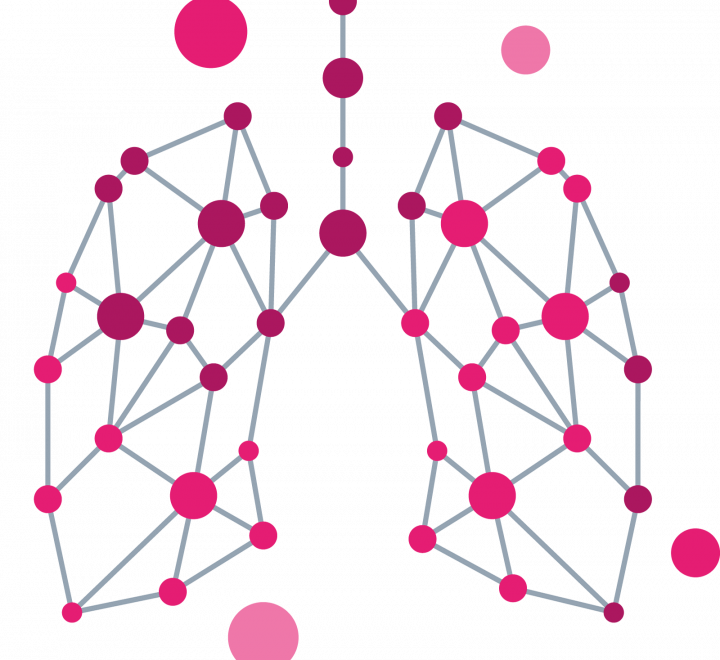

A caring instinct
Emma’s automatic response to what makes a good nurse is that you need to have a caring instinct. “Nurses demonstrate that they really care for their patients and taking the time to listen is really appreciated,” she tells us.
Emma believes thinking about the patient as a whole is crucial when it comes to respiratory care. “The psychological aspect of their care is really key to consider. I’ll always ask if they have any stress or depression. You invariably end up talking about a large aspect of their life that could be impacting on their health and mental health,” Emma explains.
“Nursing is fantastic. I’ve had lots of varied positions and opportunities and worked with some really talented, amazing individuals.” Emma tells us she’s privileged to be able to be a part of patients lives and to make a difference in helping them.
However, she also recognises there are misconceptions around the job. “I don’t think people understand how complex my role is. People can be quite surprised when I tell them I diagnose patients,” she says. “I think they think it’s mostly task-based roles, but these days nursing roles are really complex.”
The skills of a respiratory nurse
Emma has gained numerous qualifications and built up experience, both in primary and secondary care settings. She’s also worked in respiratory research. All of this has led to her being able to look after patients at the level she currently does.
Ask Emma what core skills respiratory nurses need, and she’ll tell you sound, clinical knowledge is key. “You need the knowledge on respiratory systems, treatments and medications, and thinking about comorbidities of a patient,” she says. “There are lots of skills and experience required, but it’s all achievable.”
Emma’s current role allows her to support practice nurses in providing respiratory care, and she’s privileged to be able to help. “It’s been really nice to be able to provide support and training, to help upskill practice nurses and GPs.”
Explaining treatments to patients can also be a tricky subject. But Emma says being really clear can help. On asthma for instance, Emma has a top tip to help patients adhere to their treatment, often referring to asthma control much like keeping your teeth healthy. One of the ways that Emma finds helpful in helping patients understand the importance of taking their inhaler regularly is telling them it’s just as important as brushing your teeth.
Case finding for COPD patients
Emma has been active in the research space and is a big advocate for patient-first care, believing this should be a crucial aspect of primary care. “Patients should definitely be involved in the set-up and management of healthcare services,” Emma says. “We’re providing services for patients, they should be involved so we can know what they want. But it’s difficult when you’re time pressured and everyone has deadlines.”
“We’re providing services for patients, they should be involved so we can know what they want.”
One particular research project Emma has been involved in is the case-finding initiative for identifying undiagnosed COPD in primary care. “It was a big project we ran and a lovely one to be involved in,” Emma says.
The interventional study involved the use of a case-finding algorithm which was applied to patient data at a GP practice, to identify patients at risk of COPD. “We invited patients for a lung health check, spirometry testing and a full review. We identified patients to the GP who we thought would be at risk of asthma, COPD or if they were fine,” Emma explains. “The patients and the GP practice really valued the experience and having an expert team in the GP practice.”
Emma tells us this important aspect of respiratory care has been lacking since the COVID-19 pandemic. Wanting to bring this back into the GP practice and alleviate the strain on local practices, Emma is currently in a crucial role, providing critical care to patients who have been waiting for a spirometry assessment for over 18 months. “I’m doing a spirometry catch-up program at the moment, going into GP practices, screening and performing spirometry,” Emma says. “It’s been really valuable and rewarding, using all the skills from my research career in my current role too.”

Believe in yourself
Emma says being a nurse is amazing, but there are some difficult parts to the role. Telling us her highlights, she says graduating was exciting. “Getting my degree was a highlight but throughout my career, getting good feedback has really stood out,” she says. “Getting my first paper out was a really great experience too.”
Emma has had a varied nursing experience over her 27 years in the field. “My role has changed over time. I started out in intensive care, moved into research and now I’m in primary care,” she tells us. “But all that experience has come together and helped me realise this is where I’m meant to be now. Supporting patients, practice staff and any issues they’re having from the pandemic.”
If she had to tell herself one thing at the beginning of her career, Emma would say “believe in yourself, you can do it.” Emma thinks knowing that you’re improving patient’s lives or improving their health is really rewarding. And in respiratory care, she says there are lots of opportunity. “It’s a great environment to work in, you’ll learn a lot and in primary care, you could be a real expert and have a lot of impact.”

Emma's top picks
Books or TV?
TV
Tea or Coffee?
Tea for me.
Early, late or night shift?
That’s a difficult one. Probably early – get it out the way.
On the ward, in practice or out in the community?
In the community, which is what I’m doing at the moment. I am also in the practice though too, sort of roaming around!
Summer or winter?
Summer, definitely.
Related stories


Interactive self-management: the programme supporting respiratory patients
Read article
Respiratory virtual wards – squaring the circle
Read article
The role of research in improving respiratory care
Read article
How difficult is it to diagnose people with COPD?
Read article

